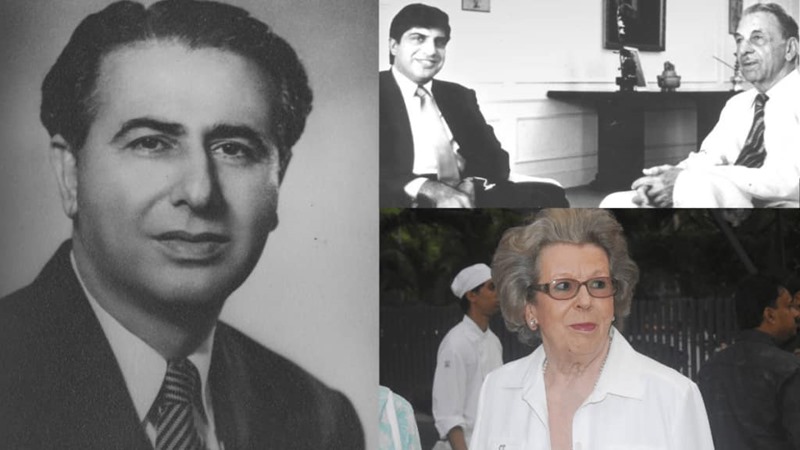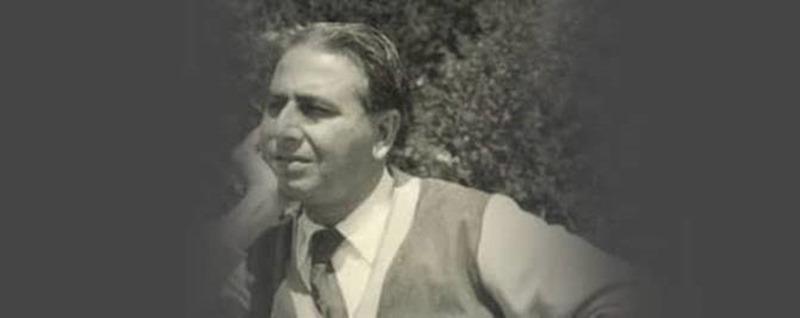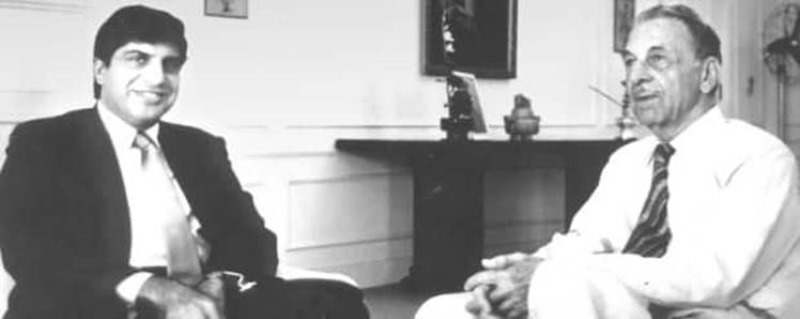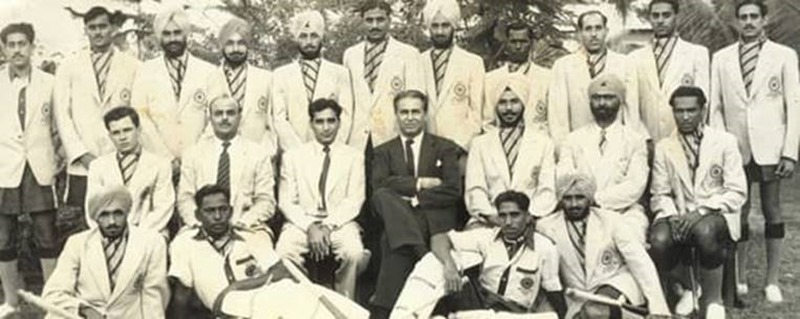At age 13, he was adopted by Sir Ratan Tata, marking the beginning of a journey that intertwined his destiny with the illustrious Tata family.
JRD Tata was the cousin of Naval tata/ Source: Tata/ India Times
Naval Hormusji Tata, a name etched in the annals of India’s industrial and philanthropic history, was much more than the father of the renowned Ratan Tata. His life, spanning 85 years, was a tapestry woven with threads of compassion, humility, and unwavering dedication to the ideals of the Tata Group. From business to sports administration, from charity endeavors to corporate leadership, he did it all.
Early life and adoption
Born on August 30, 1904, in Surat, Naval Tata’s life unfolded against a backdrop of modest beginnings. His father’s untimely demise in 1908 led the family to Navsari, where they embraced a life of frugality. Despite the challenges, Naval’s mother’s embroidery work sustained them. However, destiny had an unexpected twist in store for young Naval. At age 13, he was adopted by Lady Ratan Tata, Navajbai, the wife of Sir Ratan Tata, marking the beginning of a journey that intertwined his destiny with the illustrious Tata family.
Source: Tata
His biological father, a Spinning Master in Ahmedabad’s Advanced Mills, died in 1908 and the family moved to Navsari, where they lived modestly. His biological mother’s earnings came from needlework work. Family friends eventually boarded Young Naval at the J. N. Petit Parsi Orphanage to assist sustain them.
Opposite to JRD Tata
Naval Tata’s persona was a balance of humility and passion. He and JRD Tata, born in the same year, both shared a fervor for the Tata Group’s ideals, but their personalities diverged. While JRD was reserved, Naval was gregarious—a soul who embraced the diversity of people and life’s challenges with remarkable acceptance. His sense of humor was a roaring force, while his other qualities emanated a gentle wind of empathy, sympathy, and tolerance.
His son with JRD Tata, his cousin
Life at Tata
Naval Tata’s association with the Tata Group began in earnest when he joined in 1930. He graduated from Bombay University and pursued an accounting course in England, infusing himself with knowledge to match his aspirations. In 1933, he was appointed secretary of the aviation department. By 1939, he had ascended to the position of managing director of the group’s textile companies. His journey with Tata Sons, the conglomerate’s core entity, commenced in 1941 when he became a director. In 1961, he became chairman of Tata Electric Companies (now Tata Power) and Deputy Chairman of Tata Sons a year later.
Philanthropy
Naval Tata’s association with philanthropy was as profound as his business acumen. He chaired the Sir Ratan Tata Trust from 1965 until his passing. Furthermore, he held the chairmanship of the Indian Cancer Society from its inception in 1951 to 1989. His contributions to charitable causes extended to sports, where his leadership as president of the Indian Hockey Federation from 1946 to 1961 yielded significant milestones.
Awards and recognitions
The impact of Naval Tata’s endeavors did not go unnoticed. In 1969, he was honored with the Padma Bhushan by the President of India, recognizing his exceptional contributions to society. He also received the Sir Jehangir Ghandy Medal in the same year for his role in industrial peace. His life membership of the National Institute of Personnel Management and his inclusion in the Labor Panel of the Planning Commission underscored his influence.
Other ventures
Naval Tata’s influence extended beyond corporate and philanthropic realms. He served prestigious institutes like the Indian Institute of Science, the Bombay State Social Welfare Council, Swadeshi League, and the National Safety Council. His tenure as President of the Indian Hockey Federation for fifteen years coincided with India’s Olympic Gold wins in 1948, 1952, and 1956.
Naval Tata oversaw Indian hockey’s golden era, with the country winning three successive Olympic golds on his watch /Source: Tata
Personal life
Naval Tata’s personal life held its share of trials. His first marriage to Sooni Commissariat resulted in two sons, Ratan and Jimmy. Despite their separation in the mid-1940s, Naval’s journey took a new turn when he married Simone Dunoyer, a Swiss businesswoman, in 1955. Noel Tata, their son, emerged from this union.
Ratan Tata in an interview said that he wad bullied post his parents’ divorce since it was not so normal back in the day.
From his modest beginnings at an orphanage to his enduring influence on the Tata Group, philanthropy, and sports administration, Naval’s legacy continues to inspire and guide. As his son, Ratan Tata, reflects on the lessons he imbibed from his grandmother and his father’s legacy, Naval Tata’s values continue to ripple through time, leaving a mark on the lives he touched.




